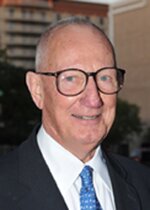POLITICAL CAMOUFLAGE AND PERSONAL COURAGE: OBAMA’S WINDOW OF OPPORTUNITY
During his hour-long Meet the Press television interview with Tom Brokaw on Sunday morning, December 7, 2008, president-elect Obama proved himself once again to be the thoughtful, articulate and effective communicator he was during the election campaign. To be sure, it was a softball session with little or no followup debate and no newsworthy pronouncements. On the matter of tax reform, Mr. Obama’s economic team is now studying the “options” of which there seemed to be none during the campaign: allowing the Bush tax cuts to expire rather than terminating them early is now on the table.
That is understandable: circumstances have changed dramatically since the late stages of the presidential contest. And some of the things Mr. Obama said about job losses and free-trade associations were political fodder, not practical strategies. He knew it, and so did most of his listeners. It is part of the process.
Those who complain that Mr. Obama, through his appointments and pronouncements, seems to be moving to the center may have been heartened by one answer Mr. Brokaw elicited regarding a key issue facing America today, but others will worry. Mr. Brokaw asked whether, with gasoline’s cost back down, in some places, to a dollar and a half per gallon, this is perhaps the time to impose a surcharge. Mr. Obama dismissed the notion, saying that “ordinary folks” who are already strained financially, and losing jobs, should not have to bear an additional burden.
It has been a long time since a president, presidential candidate, or any other politician for that matter has had the courage to look the country in the eye and say: “we have lived beyond our means, we are paying one-quarter of what the rest of the Western world is paying for gas, we will go back to gas-guzzlers as soon as the cost of fuel goes down, and we have to break that cycle.” The rewards would include decreased consumption and reduced dependence on foreign oil producers, market-driven rather than bailout-coddled research and development toward more fuel-efficient engines, and hundreds of billions of dollars to put people to work to repair the crumbling U.S. infrastructure. It would also be the end of the nonsense “fuel economy regulations” the American government tries to impose on carmakers while doing nothing to force consumers to buy smaller and more fuel-efficient cars. And by reducing consumption, promoting a shift to diesel, and stimulating competitive research, such a surcharge would contribute more to the needed cleanup of the atmosphere than all the windmills in Texas.
So one must hope that Mr. Obama’s dismissal of Mr. Brokaw’s question was just a brief reversal to a campaign mode no longer apropos. The disproportionate cost of more expensive gas to low-income Americans can be offset by tax credits or another compensatory setup, and job creation surely is the best way to help “ordinary folks.” We will soon learn whether president-elect Obama has the courage long lacking in the White House and on Capitol Hill.

